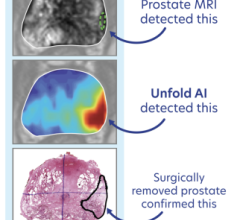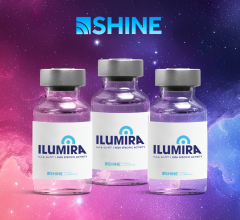
April 21, 2015 — A new prostate cancer screening technology developed by Australian scientists could be available to men by the end of this year, after being shown to be more than twice as accurate as existing Prostate Specific Antigen (PSA) screening technology.
The blood test, known as MiCheck, has been in development at private Australian biotechnology company Minomic International Ltd for almost eight years. It works by screening for a proprietary biomarker known as the MIL-38 antigen. This biomarker is present on the surface of prostate cancer cells. In addition, Minomic scientists have now identified two other biomarkers never previously used in prostate cancer diagnosis to further improve the test.
In the latest trial, scientists tested 300 patient samples sourced from 10 major urology centres across the United States. The non-randomized pilot study was designed to further verify the accuracy and reliability of the technology in differentiating normal, benign and prostate cancer samples.
Researchers led by Principal Investigator Neal Shore, M.D., FACS, medical director, CPI, Atlantic Urology Associates, South Carolina, found MiCheck had a demonstrated specificity of 85 percent, compared to just 40 percent for existing PSA screening technology. It also demonstrated 60 percent sensitivity.
This means that MiCheck delivers 1.5 false positives for every ten samples, compared to six false positive results in every 10 samples using standard PSA diagnostic technology.
International urology expert Prof. David Gillatt, who is based at Macquarie University Hospital, Sydney, Australia said it was globally recognized that new tools were required to more accurately detect the presence of prostate cancer.
He said the PSA test remained the gold standard prostate cancer-screening tool globally, but was well-known for delivering a large number of false positive results.
"PSA readings can be elevated by simple activities like riding a bike," he said. "We know PSA will give a false positive reading in six out of 10 cases. This means men around the world are sent off for invasive biopsies and further medical investigations when in fact there was no need (in 6 out of 10 cases)."
A final trial of the MiCheck technology will be launched in the United States later this year, with scientists screening 1,200 patient samples to provide final stage validation. These results, combined with results from this 300 patient study, will be included in a comprehensive package submitted to the U.S. Food and Drug Administration for regulatory approvals.
For more information: www.minomic.com


 December 04, 2025
December 04, 2025 









